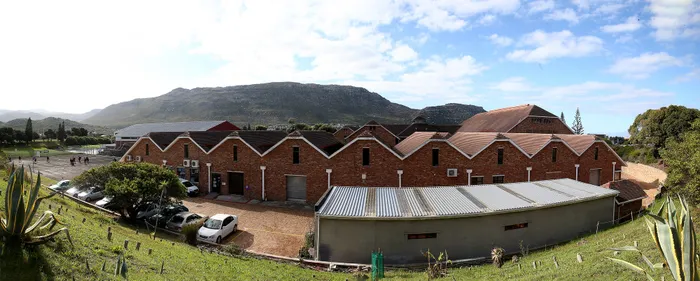‘There are just not enough schools’

Fish Hoek High School has received more than 1 000 applications for Grade 8s for the 2025 academic year and only has space for 224.
A Fish Hoek Primary School Grade 7 pupil who lives within walking distance of the local high school has been unable to get accepted there for next year because there is no space for her.
The school says it received more applications than it can accommodate and had to prioritise candidates based on criteria such as academic performance.
The pupil’s mother, who has asked to remain anonymous to protect the identity of her daughter, said it was unfair to “determine a child’s future” based solely on their marks.
The mother said she had applied on the Western Cape Education Department’s (WCED) portal before the April 12 deadline and had received an “unsuccessful, school is oversubscribed” response from all three schools she had applied for.
On the first round, she said, she had appealed to Fish Hoek High School in July and had received a response that the school was oversubscribed and could not offer placement.
She was told that the WCED would contact families whose children had not been placed as more than 1 100 applications had been received for the upcoming academic year and the school could only place 224.
Since then, she said, she had been sent from pillar to post with the school referring her to the WCED and the department referring her to the school.
In August, she submitted an appeal through the WCED portal and was informed that, according to the school, the admissions committee had to adhere to strict guidelines to ensure a fair and equitable process, and her daughter was declined because her Grade 6 first and fourth term reports did not meet competitive standards set by other applicants.
The mother said Fish Hoek Primary and High schools had been home to her entire family from grandparents, parents, siblings, uncles, aunts, and cousins for four generations.
She said her daughter had attended Fish Hoek Pre-Primary and now the primary school, and the family lived within 5km of the school.
“There are thousands of children being rejected by local schools. Our children have a right to education by law, and the process is a nightmare as there are just not enough schools in the Western Cape,” she said, adding that parents were forced to place children in private or cottage schools with fees that cost double those of a government school.
She said her daughter was a “soft-hearted, quite natured, diligent child who loved reading, arts, music, and culture” and being separated from her current circle of friends, who had all been accepted to the school, would be devastating.
Fish Hoek High School governing body chairperson Cris Riego de Dios said the school followed a strict admissions process for placements guided by the WCED.
That process, he said, included diverse criteria to ensure the school could place the 224 pupils selected from more than 1 000 applications.
The school had given the mother a chance to appeal, and the process had concluded in July, he said.
He said the mother had also lodged an appeal with the Education MEC’s appeal process, which had become available online at the beginning of August.
The mother said that in response to the appeal, the WCED had consulted with the school and she had been told that her daughter’s grades did not meet requirements.
WCED spokesperson Bronagh Hammond said school governing bodies determined the school’s admission policy and the following year’s admission lists based on that policy.
Some schools, she said, were more popular than others, getting thousands of applications for only 100 Grade 8 spaces.
The Western Cape had not determined any feeder zones for public schools, which had allowed thousands of pupils to attend schools in other areas across the province, she said.
If feeder zones had been applied, pupils who commuted to various areas across Cape Town to attend school would not be able to do so, she said.
The South African Schools Act gave a school governing body the power to define feeder zones as part of its admissions policy, but Fish Hoek High’s policy did not include feeder zones or schools, she said.
She appealed to parents who had not yet applied to a school for 2025 to do so immediately.
“Officials are currently working hard to match and place learners in schools. They may not, however, necessarily be the parent's first choice of school,” she said.